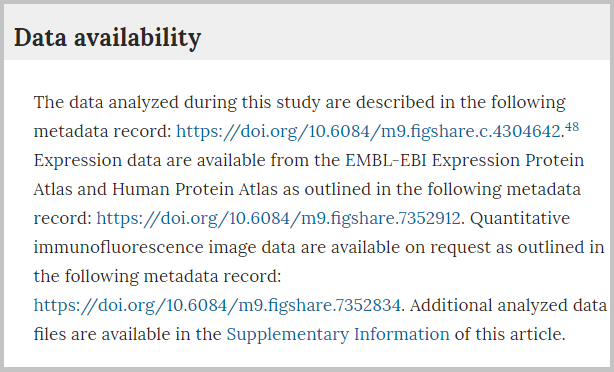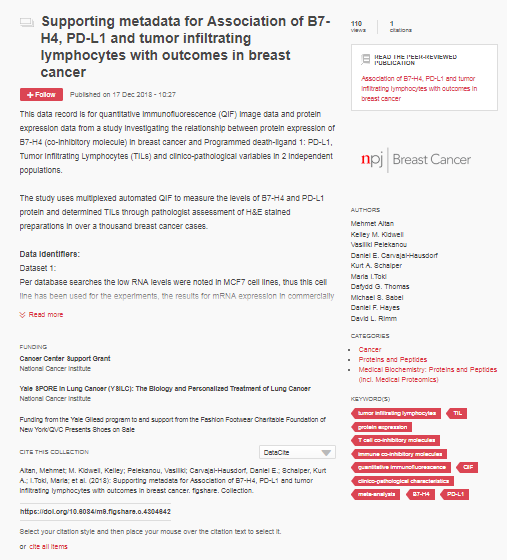A new approach to supporting data sharing in breast cancer research
Published in Research Data
To promote transparency and reuse of research, the Nature Research journal npj Breast Cancer is conducting a pilot project that provides authors with enhanced editorial support to describe, share and link to the research data that underlies papers published in the journal.
The pilot involves dedicated Research Data Editors reviewing manuscripts before publication and advising authors about appropriate repositories for datasets that can be shared publicly. The Research Data Editors also help authors prepare detailed data availability statements to accompany their articles, ensure that descriptions of datasets which cannot be shared publicly are included, and describe any conditions for accessing datasets.
Research Data Editors - who form part of Springer Nature’s Research Data Support services team - also provide hands-on support for authors to deposit and organise datasets in the journal’s own data repository.
You can already find several published data and metadata records resulting from this pilot in the journal’s figshare repository, which also provides a place to publish supporting data files that have not been shared previously. An example Data availability statement is pictured, showing how authors have been able to go well beyond “data available on reasonable request”, with Research Data Support.

While the standard Research Data Support service is optional, this new approach with npj Breast Cancer provides a consistent service to every accepted paper published in the journal. Thanks to our partnership with the Breast Cancer Research Foundation (BCRF), this comes at no cost to the authors. We envisage that this approach to Research Data Support will drive up standards for data sharing consistently in the journal. We have also increased the scope of Research Data Support, helping authors follow best practice in data sharing even if they don’t have data that can be shared publicly via figshare.
Research Data Editors work with authors to document key information (metadata) about their data including file names, locations, formats, software and access requirements. Research Data Editors also give advice on de-identifying data about human research participants, and create a rich metadata record for each published article, creating a comprehensive catalogue of datasets supporting articles published in the journal.
We are continuing to test and refine new data curation procedures for Research Data Support and this pilot exemplifies this approach. To support the journal’s requirements we have evolved our editorial and data curation checks to fit with a workflow that is even more integrated with the editorial process. We’ve previously observed that professional curation is associated with increase metadata quality scores and, in developing this pilot, have tested different methods of capturing metadata consistently and efficiently.

We’ll share more of what we learn once the pilot is complete but there are already several examples of successful outcomes of the pilot published as a result of pre-launch testing. Value added to these papers and their supporting data include:
Publication of additional datasets in figshare not previously released with the article
Far more detailed information published on data that are “available on request”
Inclusion of additional data references/citations in the article
Rich (meta)data records for papers in figshare
You can read more about this pilot, including Frequently Asked Questions for authors, on the npj Breast Cancer website, and in Editor-in-Chief Dr Larry Norton’s editorial.

Please sign in or register for FREE
If you are a registered user on Research Communities by Springer Nature, please sign in